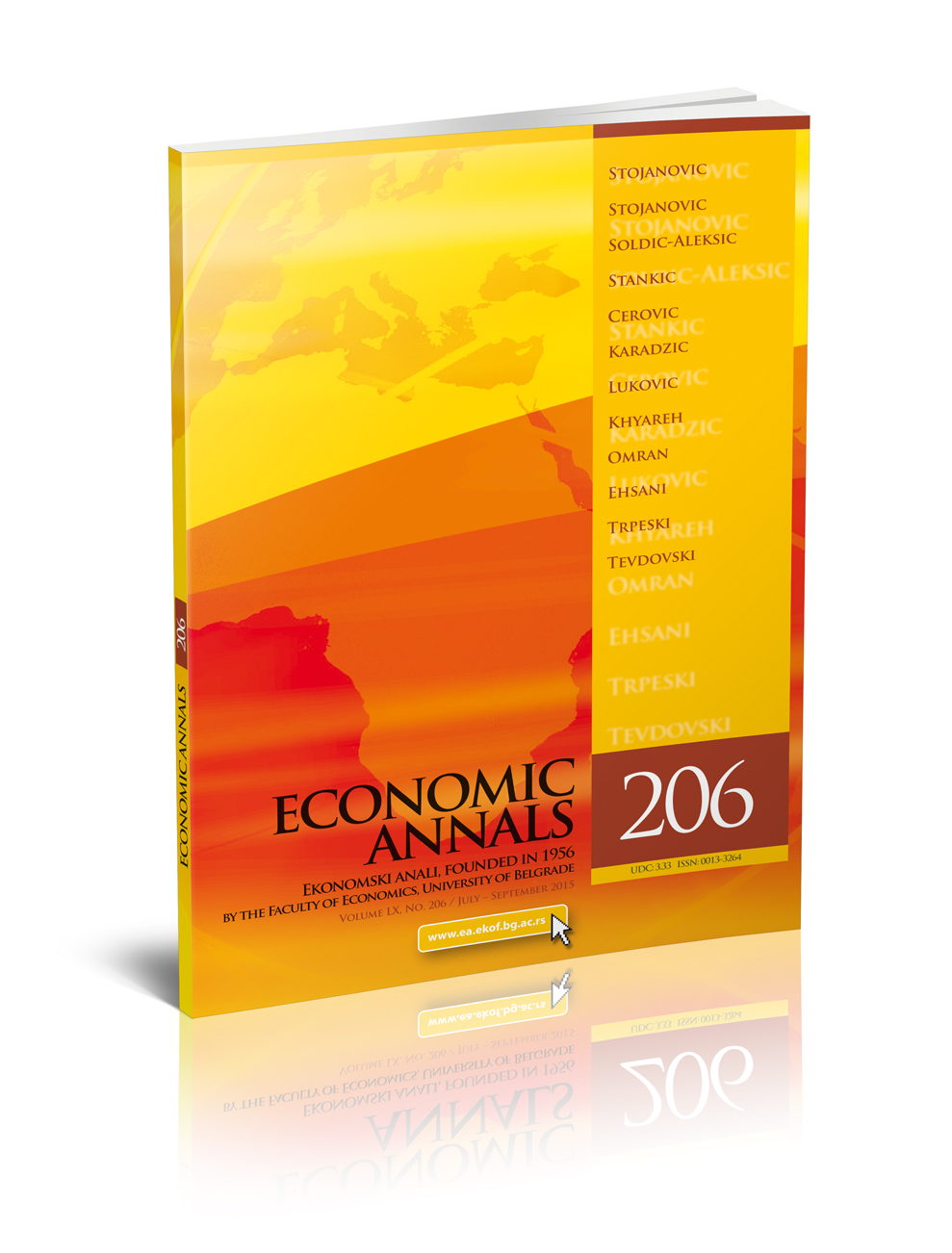EXTREME VALUE THEORY IN EMERGING MARKETS: EVIDENCE FROM MONTENEGRIN STOCK EXCHANGE
##plugins.themes.bootstrap3.article.main##
##plugins.themes.bootstrap3.article.sidebar##
Julija Cerović
Vesna Karadžić
Vesna Karadžić
Abstract
The concept of Value at Risk(VaR) estimates the maximum loss of a financial position at a given time for a given probability. This paper considers the adequacy of the methods that are the basis of extreme value theory in the Montenegrin emerging market before and during the global financial crisis. In particular, the purpose of the paper is to investigate whether the peaks-over-threshold method outperforms the block maxima method in evaluation of Value at Risk in emerging stock markets such as the Montenegrin market. The daily return of the Montenegrin stock market index MONEX20 is analysed for the period January 2004 – February 2014. Results of the Kupiec test show that the peaks-over-threshold method is significantly better than the block maxima method, but both methods fail to pass the Christoffersen independence test and joint test due to the lack of accuracy in exception clustering when measuring Value at Risk. Although better, the peaks-over-threshold method still cannot be treated as an accurate VaR model for the Montenegrin frontier stock market.
##plugins.themes.bootstrap3.article.details##
Keywords
Extreme value theory, Value at Risk, fat tails, Block maxima method, Peaks over threshold method, Generalized Pareto distribution
JEL Classification
C13, C22, G10
Issue
Section
Articles
How to Cite
Cerović, J., & Karadžić, V. (2015). EXTREME VALUE THEORY IN EMERGING MARKETS: EVIDENCE FROM MONTENEGRIN STOCK EXCHANGE. Economic Annals, 60(206), 87-116. https://doi.org/10.2298/EKA1506087C
How to Cite
Cerović, J., & Karadžić, V. (2015). EXTREME VALUE THEORY IN EMERGING MARKETS: EVIDENCE FROM MONTENEGRIN STOCK EXCHANGE. Economic Annals, 60(206), 87-116. https://doi.org/10.2298/EKA1506087C

